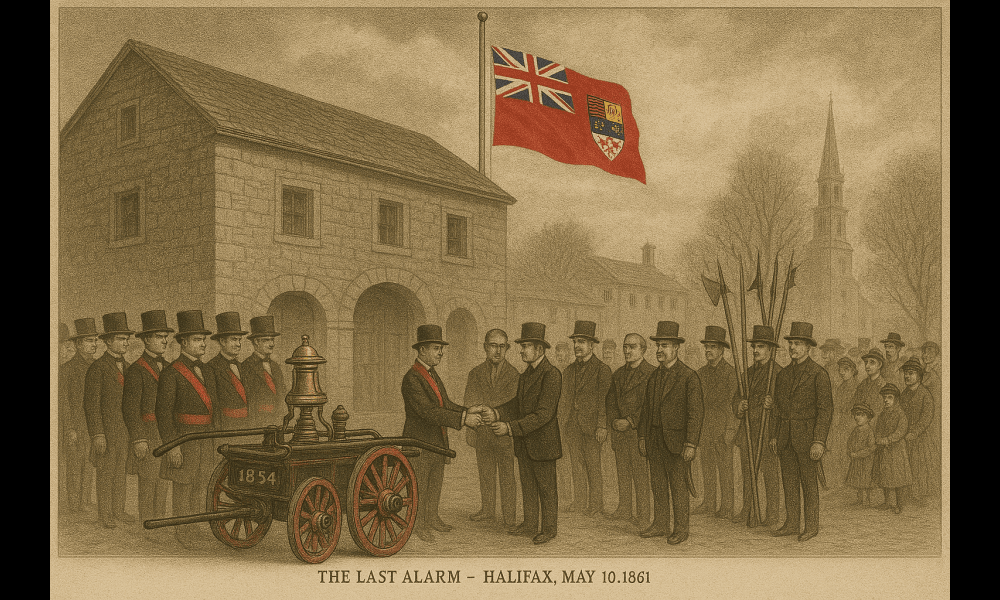The 1861 resignation of both the Union Engine Company and the Axe Fire Company was a watershed moment in the history of firefighting on the Halifax Peninsula, ending nearly a century of continuous service by one of its oldest fire companies.
Background and Lead-Up
Tensions between the volunteer companies and City Council had been building, particularly surrounding issues of autonomy. On May 6, 1861, the Council passed a resolution that no person would be recognized as a member of the fire brigade unless elected by Council itself. This directly challenged the longstanding independence of companies like the Union Engine Company, which had always elected its own members. The new measure was an attempt to enforce a law that had technically existed since 1828 but had never been implemented.
The Resignation
In response, on May 7, 1861, the Union Engine Company held a special meeting and unanimously voted to resign:
"We... are denied in future the poor privilege of electing our own members. We feel that it is due to the Honour of the Company to preserve unsullied our independence... It only remains to tender... the official resignation of the Company and to hand the authorities all of the apparatus... such resignation to take effect after 48 Hours"
— John R. Willis, Secretary, U.E.C.
The Axe Fire Company simultaneously submitted its resignation, though the archival record focuses more heavily on the Union Engine Company’s formal communications and subsequent actions.
Support and Fallout
The Board of Firewards sided with the two companies, passing a resolution on May 9 stating that Council had acted prematurely and that the resignations were "independent and worthy of all praise".
On May 10, 1861, at precisely 11 a.m., the Union Engine Company officially carried out its resignation. Flags were lowered, private property was removed, and keys were handed over to the Firewards and then to the Mayor:
“This terminates the connection of the Union Engine Company 1768 with the Corporation of Halifax after a faithful period of gratuitous service of 93 years.”
— John R. Willis, Secretary, U.E.C.
That same day, Council accepted the resignations and issued a public call for citizens to form new companies. A temporary committee was also formed to oversee fire protection in the interim.
Aftermath
For a short period, Halifax was left without organized fire protection. Citizens formed an ad hoc brigade, but the lack of training and experience was evident. Despite best efforts, this interim force could not match the effectiveness of the disbanded companies.
Ultimately, the Union Engine Company was reformed under a new structure and name—the Union Protection Company—on May 21, 1861, choosing to operate as a salvage-focused “bag company” rather than re-enter direct firefighting under municipal control.
The resignation of 1861 marked the end of Halifax’s original volunteer fire brigade era and the beginning of a transitional period that would eventually lead to the establishment of a fully paid fire department.


